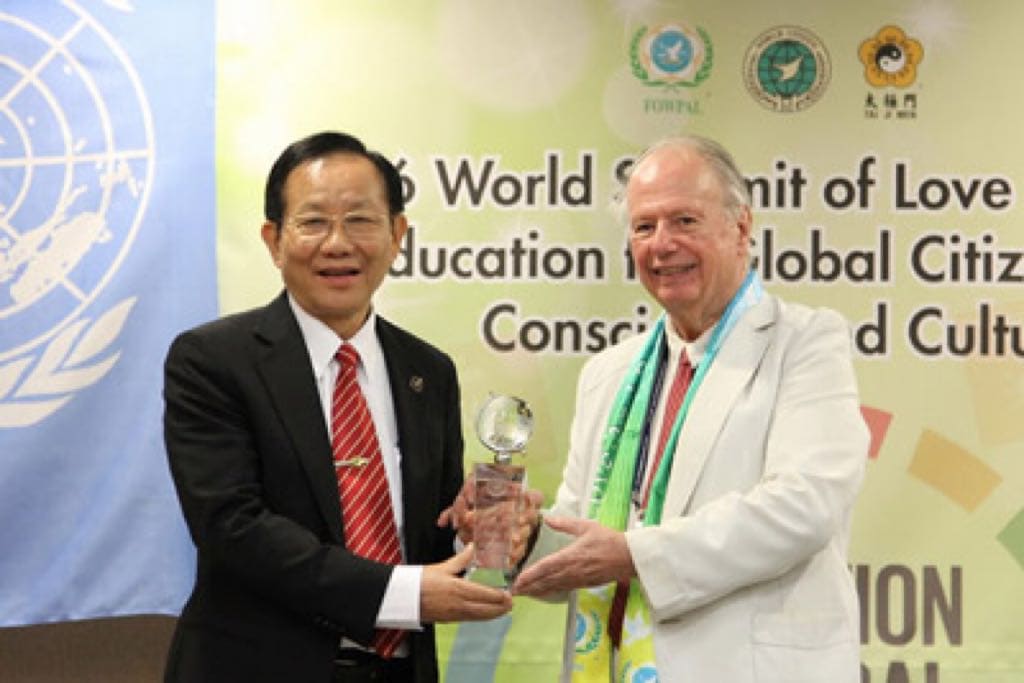A written statement at the UN Human Rights Council supports the proposal and reminds the international community that the Tai Ji Men case has not been solved yet.
by Massimo Introvigne


An international United Nations day of observance against the states that abuse their laws and taxes to persecute individuals and minorities.This is the proposal launched by Dr. René Wadlow, President of the ECOSOC-accredited NGO Association of World Citizen (AWC) and by Dr. Hong Tao-Tze, the Shifu (Grand Master) of the spiritual movement Tai Ji Men who is also Vice President of the AWC.
The proposal has now received support at the United Nations through a written statement, filed with the UN Human Rights Council on February 3, 2023, and distributed on March 31 through the website of the United Nations (sometimes difficult to access: we also provide a downloadable copy of the document), by another ECOSOC-accredited NGO, CAP-LC (Coordination des Associations et des Particuliers pour la Liberté de Conscience, i.e., Coordination of Associations and Individuals for Freedom of Conscience).
The title of the statement is “Abuse Of Tax Law to Persecute Spiritual Minorities and Declaration of an International Day Against Judicial and Tax Persecution by the State Power.” CAP-LC reminds the international community that, “Religious and spiritual minorities, some of them slandered through the use of derogatory terms such as ‘cults,’ continue to be discriminated and persecuted through the abuse of tax laws.” For example, “The European Court of Human Rights has denounced in the past similar abuses against the Jehovah’s Witnesses and other groups in France.”


CAP-LC also mentions that in several previous written statements it has called the attention of the Human Rights Council on the case of Tai Ji Men, a spiritual group that, after having been unlawfully accused of fraud and tax evasion by government officials in Taiwan, has been declared not guilty of any crime (including tax evasion) by courts of law up to the Supreme Court, yet continues to be harassed through unverified tax bills to this very day. “These cases, CAP-LC says, are symptoms of a broader problem: the attempt of governments and bureaucrats to repress unpopular religious and spiritual minorities through the abuse of administrative and tax provisions.” CAP-LC thus supports the designation of “December 19, the day the Tai Ji Men case started in 1996,” as the “‘International Day Against Judicial and Tax Persecution by State Power’” and the “Declaration of the International Day Against Judicial and Tax Persecution by State Power” issued by AWC and Tai Ji Men Qigong Academy.
CAP-LC quotes the Declaration when it states that throughout human history, “those in power who are driven by greed, pursuing personal ambition for power, wealth, and fame, or who lack the courage to implement the right decisions and policies that will benefit the people, allow unscrupulous officials to break the law and abuse their authority. Such officials often use the judiciary and taxation as tools to discriminate against and persecute individuals or groups based on race, culture, religion, or belief. This includes depriving these individuals or groups of their rights to personal freedom and/or freedom of religion, belief, and thought, as well as their property rights, right to life, and right to survival. The degree and scope of the harm to individuals and society are comparable to those caused by war and torture. Heads of state and regular global citizens alike should cooperate to supervise governmental activities, ensuring that human rights are protected through respect, tolerance, and peaceful dialogue and that effective rule of law systems benefiting the public and the environment are established to create a harmonious and stable world.”


“Calling all government to respect the Universal Declaration of Human Rights,” CAP-LC adds, “the document offers specific comments about the abuse of the tax system.” Another quote from the Declaration is offered: “Taxation directly affects people’s property rights and right to life, which are fundamental rights, as well as their dignity. A nation’s tax policies and practices, including tax collection, relief, and enforcement, should be based on human rights protection, and they should be lawful, rigorously adhere to due process, and conform to the principles of proportionality and equality. Relevant government officials should not abuse their power, illegally take people’s property, or violate personal freedom in the name of tax collection. It is strictly prohibited for governments and law enforcement agents to use taxes as a tool to target or discriminate against specific people or groups”—“something that also happens, too often, at the expenses of freedom of religion or belief,” CAP-LC comments.
“We urge the international community, the Declaration as quoted by CAP-LC concludes, to pay special attention to and forbid judicial and tax persecution by public authorities out of respect for conscience and the preservation of human dignity. Accountability for civil servants who abuse their authority and violate the law should be established, and the effectiveness of remedial measures and international monitoring mechanisms should be strengthened. The Universal Declaration of Human Rights, the International Covenant on Civil and Political Rights, and the International Covenant on Economic, Social and Cultural Rights should be implemented to fortify the foundation of freedom, justice, security, and peace in the world, uphold the basic dignity of humanity, promote the development of a sound human society, and enhance the well-being of all people.”
The statement concludes that the “Coordination des Associations et des Particuliers pour la Liberté de Conscience endorses the ‘Declaration of the International Day Against Judicial and Tax Persecution by State Power,’ and asks that all the authorities involved in the abuse of tax and administrative provisions to violate human rights and limit freedom of religion or belief cease and desist without delay from these unacceptable forms of discriminatory behavior.”









